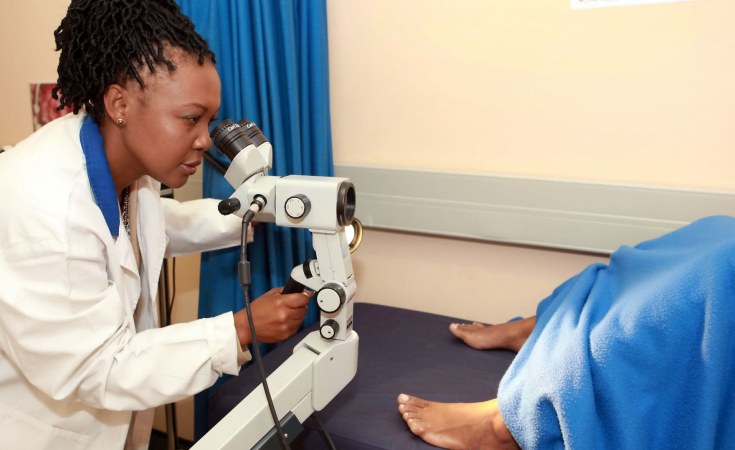Professor Salim Abdool Karim, director of the Centre for the AIDS Program of Research in South Africa (Caprisa) at the University of KwaZulu-Natal and Columbia University in the United States, spoke to AllAfrica's Julie Frederikse about the unexpected halt of a study into tenofovir vaginal gel. This followed a finding that the microbicide failed to prevent HIV transmission, in contrast to the positive result in a previous study conducted by his Caprisa team.
What happened when you heard the findings of the new study that contradicted your results?
We were surprised and very disappointed. We know that science doesn't always give you the answers you want and hope for, but when you look at the totality of the evidence, we know that there's still pretty strong evidence, whether from the laboratory or in monkeys or in humans, that tenofovir gel is effective in preventing HIV. This is rationale for why the Caprisa and Voice (Vaginal and Oral Interventions to Control the Epidemic) studies were conducted in the first instance. So now we need to understand why the Voice trial produced a different result.
Is this a big setback to Caprisa's research?
The Voice trial is an important result. We now need to understand it. It doesn't take us completely off track - it's a temporary setback - and understanding this result would put us in a better position to move forward again. Science grows not only from success, it also grows from failure.
Has the suspension of this study demoralised your team?
That's the nature of science. In a series of studies, it is seldom that every study shows the same thing. But we'll stay on track, and try and understand why the Voice result is different. Whether the women in the study were not using the gel correctly, or there were other underlying problems, we don't know yet. It's too early to tell.
What are the different ways that women use the gel?
It is important to note that in the Caprisa study, the women were told to use the gel at the time of sex, when the exposure to the virus was occurring, whereas in the Voice study, the women were told to use it on a daily basis. So they could have inserted the gel many hours before or after they had sex. Right now we don't know if it was the different dosing, or adherence, or something else that explains the different results of the two studies. I think that the more likely explanation for the lack of effectiveness of tenofovir tablets and gel in the Voice study has to do with the onerous task of taking the tablets or inserting the gel every day, even when you're not having sex. It was prescribed for use every day, but it is not clear if the women in the study did use it every day. But that's just a hypothesis - we await the data to establish the facts.
Both your Caprisa study and the Voice study evaluated antiretroviral (ARV)-based approaches for preventing the sexual transmission of HIV in women. Does the Voice trial's result mean that ARVs, which are largely used for treatment, cannot be used for prevention?
This is a completely different concept from "treatment for prevention", which is where people who have HIV are given treatment to suppress the amount of virus they have, so as to reduce the risk of them passing it on to their HIV-negative partners. The Voice study results do not contradict the results of the "treatment for prevention" studies, which have shown very large protective effects.
The Voice study investigated the use of antiretrovirals being taken by HIV negative people as prophylaxis. The reason I'm not so perturbed about this setback is that there is another study underway: the Facts study (Follow-on African Consortium for Tenofovir Studies, funded by the South African government, USAID and the Bill & Melinda Gates Foundation). It's testing about 2,200 women, and it's prescribing tenofovir gel in the same way as the Caprisa study (known as 004) did - with sex. That's the result that will either confirm or not confirm the Caprisa result, that is, confirm whether tenofovir gel, when used at the time of sex, works or not.
The Voice results set us back 18 to 24 months. Originally, we hoped that the Caprisa 004 plus the Voice data would, together, lead to licensure of tenofovir gel. Now, we will have to wait for the Facts results, and we're waiting for approval from the (South African) Medicines Control Council for the next Caprisa study, which will contribute useful data on how best to implement tenofovir gel and how to get women to use the gel in family planning clinics. The Facts study is critically important for the future of tenofovir gel.
So what will the CAPRISA team do while you wait for the next study's outcome?
We go back to the lab. We try and figure out why the Voice study produced this result. We will compare data from the Voice study with data from the Caprisa 004 study. That will give us leads as to what to do next.


